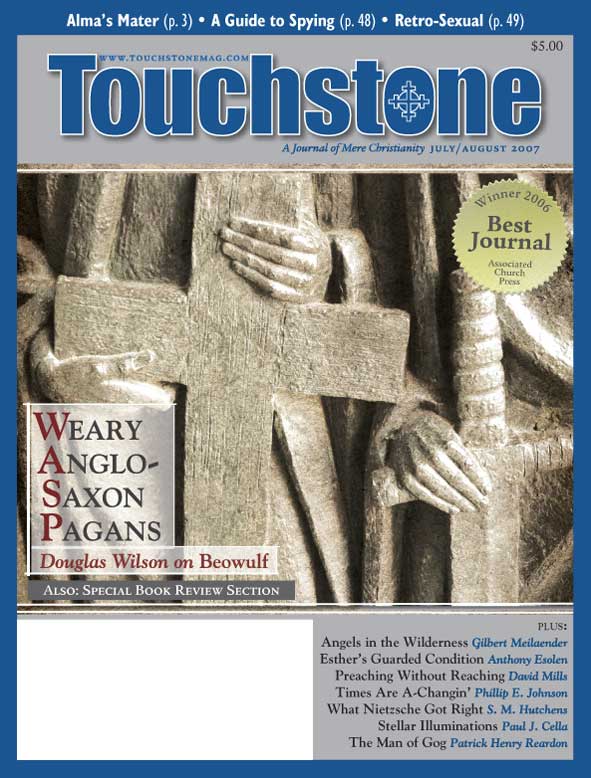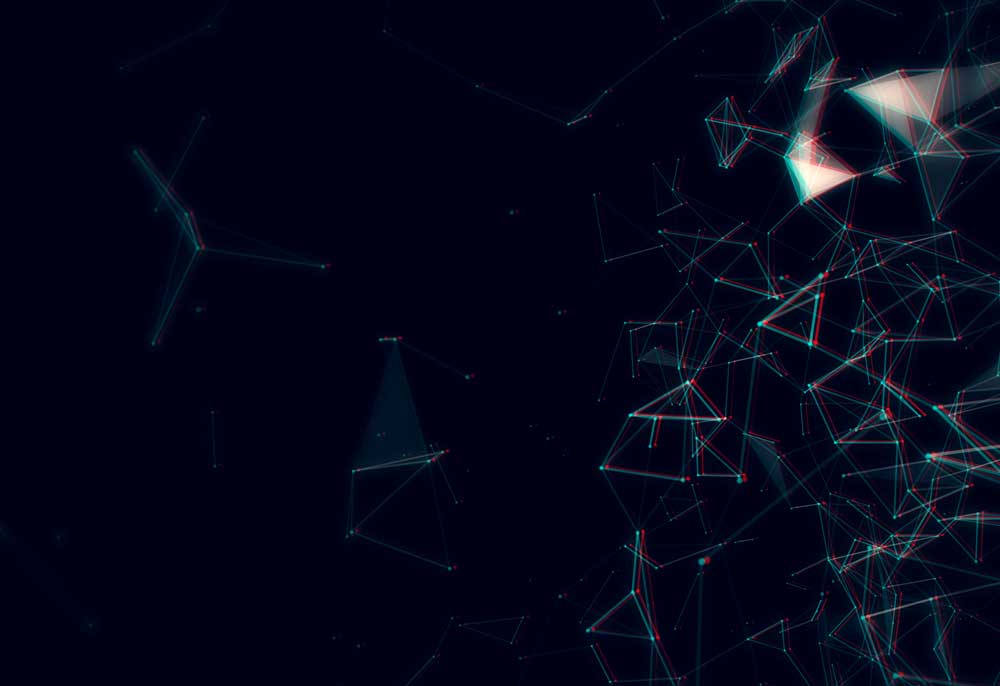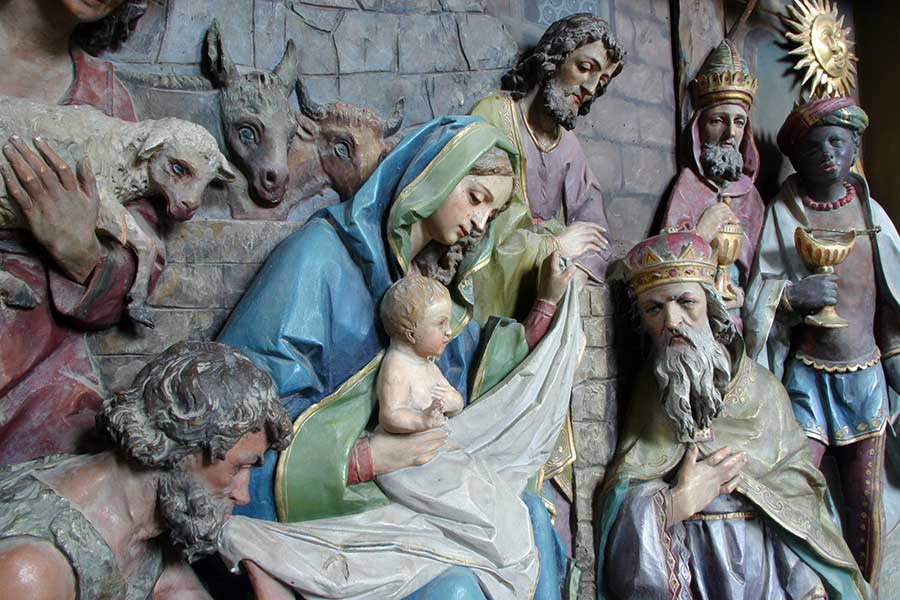View
Night Lights
Paul J. Cella III on Stellar Illuminations & the Mystery of Being
In the late autumn, the stunning figure of Orion rises in the southeastern sky. Last year, my children were especially eager to see Betelgeuse, the impressive red-hued star on the northeastern edge of the constellation, not least because of its amusing name, affectionately mispronounced “beetlejuice.”
Even in the center of a great city like Atlanta, bathed in artificial light, the reddish hue of this giant is perceptible. My Field Guide to the Night Sky reports that Betelgeuse really is a colossus of the cosmos: a “red supergiant” with a diameter comparable to the orbit of the planet Venus (or maybe larger than that: according to Wikipedia, its outer edges would extend to Jupiter; and then there is this comparison of volume: if our Sun were a beachball, Betelgeuse would be a large stadium).
But the aged colossus is dying. In a thousand years or so, a few moments in the life a star, it will likely explode in a spectacular supernova which, according to some astronomers, will achieve an apparent magnitude equal to a half moon or more. For several months, the holocaust of this star’s demise will be easily visible even during the day.
No Necessity
“Beetlejuice, Daddy! Let’s go look at Beetlejuice,” my children cry; and I am glad. A child, I think, who lives in anticipation of seeing the stars, is a child still alive to wonder.
To look upon the stars on a clear night, as your eyes make their gradual adjustment to the darkness and the little pinpricks of radiance emerge, is to be struck in a very graphic way by the astounding mystery of being. Out of darkness there is light. There is no necessity behind the existence of the stars, no matter what tangled sophistries our materialists will weave: They just are, and they might not have been.
The bare truth is that not even the most subtle science can demonstrate causality: In strict logic, it can only demonstrate sequence. Something happens and another thing follows it; that the second has so far always followed the first in no way demonstrates that it must do so again.
“If there are enough identical sequences,” Lawrence Brown once explained, “the idea of some common origin for all these identical events occurs to the mind of the observer.”
He calculates a cause, a necessity. He does not see or measure that. If there were no idea of necessity, no observation would ever disclose it. The search has never been to find causality and prove that such a necessitous relationship existed among material forces and objects but simply to discover how it worked, not its existence, but the laws of its operation.
I confess that often there is more that is sympathetic in the heady astrologist who sees vast and intricate earthly causality in the movement of the stars, than in the austere materialist who would, by his sterile rationalism, drive wonder from the child-stargazer by teaching a sham causality of Fate.
Paul J. Cella III is a writer living in Atlanta, Georgia, and editor of the website Cella's Review ( www.cellasreview.blogspot.com).
subscription options
Order
Print/Online Subscription

Get six issues (one year) of Touchstone PLUS full online access including pdf downloads for only $39.95. That's only $3.34 per month!
Order
Online Only
Subscription

Get a one-year full-access subscription to the Touchstone online archives for only $19.95. That's only $1.66 per month!
bulk subscriptions
Order Touchstone subscriptions in bulk and save $10 per sub! Each subscription includes 6 issues of Touchstone plus full online access to touchstonemag.com—including archives, videos, and pdf downloads of recent issues for only $29.95 each! Great for churches or study groups.
Transactions will be processed on a secure server.
more from the online archives

28.3—May/June 2015
Of Bicycles, Sex, & Natural Law
Describing Human Ends & Our Limitations Is Neither Futile Nor Unloving by R. V. Young
calling all readers
Please Donate
"There are magazines worth reading but few worth saving . . . Touchstone is just such a magazine."
—Alice von Hildebrand
"Here we do not concede one square millimeter of territory to falsehood, folly, contemporary sentimentality, or fashion. We speak the truth, and let God be our judge. . . . Touchstone is the one committedly Christian conservative journal."
—Anthony Esolen, Touchstone senior editor








